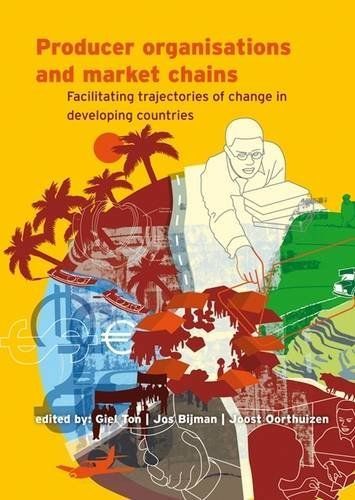
Producer organisations and market chains Facilitating trajectories of change in developing countries
The role of producer organizations in market chains has received increasing attention in recent years, both from governments and donors. In order to lower transaction costs, markets demand that smallholder farmers operate in an organized manner. However, though the policy openings for support seem promising, smallholder market access through farmer-The role of producer organizations in market chains has received increasing attention in recent years, both from governments and donors. In order to lower transaction costs, markets demand that smallholder farmers operate in an organized manner. However, though the policy openings for support seem promising, smallholder market access through farmer-led economic organisations is not easy.This book presents various approaches to support producer organisations in terms of providing economic services to their members, with a focus on developing countries. Markets are increasingly fragmented in value chains that link farmers with specific processors, retailers and consumer segments. Several contributions in this book analyse these dynamics in specific value chains, such as the fair trade and organic agriculture and their potential to provide market outlets for smallholder farmers.The sixteen contributions in the book are organized in three sections:- organisational support for producer organisations;- value chain development with producer organisations;- changes in the institutional environment for producer organisations.This book is the result of a Dutch partnership between policy makers, researchers and practitioners designed to confront ideas with realities. Organized in a platform called Agri-ProFocus, members aim to provide more and better support to producer organisations in the South. Through so-called expert meetings, staff from donor organisations and knowledge centres, government officials, and business representatives, share their experiences and lessons learned.The experiences presented in this book are not recipes for instant success, but instead, highlight that support processes are often more fragile and slower moving than policy makers realise. This book is essential reading for scholars, practitioners and researchers interested in supporting and facilitating trajectories of change led by producer organisations in developing countries.